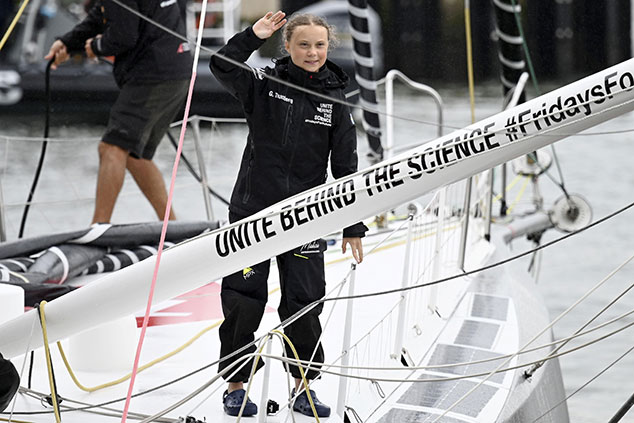
Imagine telling anyone ten years ago that the UK would be in the middle of an election, the winner of which could be an old-fashioned socialist ideologue with a history of promising asset appropriation. Imagine telling the same person that in 2019 technology companies would be almost universally considered close to evil, and that vast multinationals were to be forced to pay tax at reasonable levels in each country in which they operate. Nuts, they would have said. If a company can grow to be bigger than a small country which country can control it?
But here’s the thing that might have floored that person even more – the idea that one 16-year-old girl might single-handedly change the valuation of an entire industry. “If there is one name everyone in the airline industry knows today that it perhaps didn’t know a year ago, it’s Greta Thunberg,” says Virgin Atlantic boss Shai Weiss. So they should. The word flygskam (Swedish for “flight shame”) was barely used before November 2018, says Citibank but, thanks to Greta, its use “has been growing in a parabolic fashion”. An awful lot of people say they just aren’t going to fly anymore. Airport valuations rest on a couple of vital assumptions – that rates will stay low and that passenger numbers will keep rising. I’ll leave the former for another time. But the latter is far from a given.
What if would-be passengers stick to the train? What if those that don’t, have to pay for carbon offsets (via taxes or extra charges)? That, on Citibank data, would cost them $3.8bn a year by 2025. If the airlines took on the cost instead (in an effort to keep people flying and their volume assumptions valid) it would use up 27% of all airline profits. Doing the same offsetting for corporate consumers would cost another 17%. How’s that for an anti-globalisation black swan?
How do you invest in a world of relentless political risk like this? Make sure the assets you own offer some sort of cushion against the unexpected (airports don’t). Perhaps they are undervalued, have low levels of debt – or are even sitting on unusually large amounts of cash. We aren’t the first to wonder about this. It has looked like time for investors to shift out of high-growth, high-priced firms and into those offering more margin for error for some time now. There has already, says John Authers on Bloomberg, been a “big shift” towards value stocks (“those that look cheap relative to their fundamentals”).
We will be taking a wider look at value in a few issues’ time. But this week, we look at the value and income available to those brave enough to invest in Japan. Japan has long been viewed as a no-go for anyone who cares about the way shareholders are treated. That’s changing – and it is throwing up huge opportunities for the open minded. This is the most under-owned developed market in the world. It really shouldn’t be.